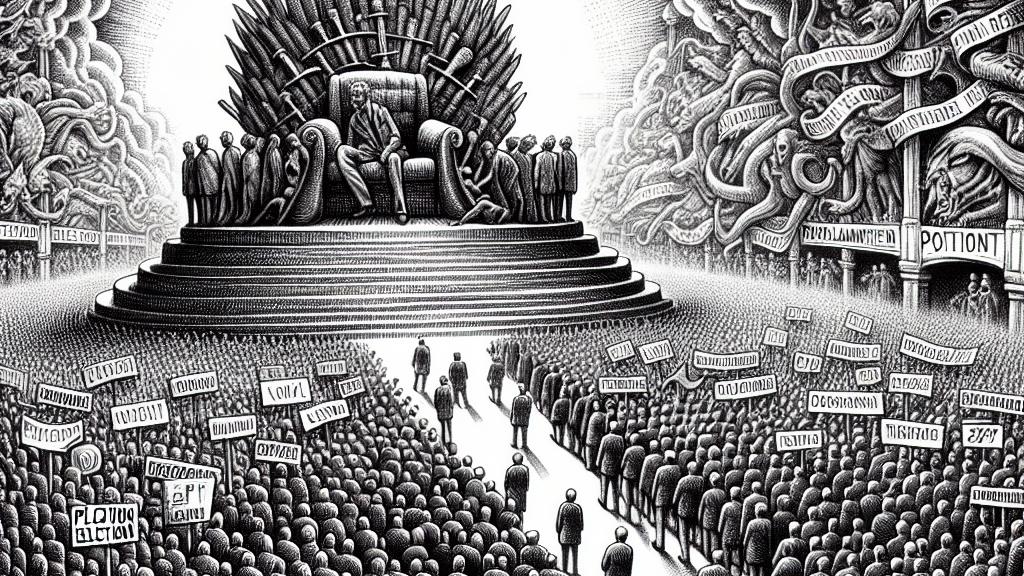Wickremesinghe's Re-election Bid: A Political Tightrope in Crisis-Ridden Sri Lanka!
Overview
- Sri Lankan President Ranil Wickremesinghe battles for party support as he seeks re-election amid economic turmoil.
- The upcoming election, set for September 21, 2024, presents a critical test of leadership in a crisis-hit nation.
- Heightened public discontent, rising poverty levels, and corruption pose significant challenges to voter sentiment.

Challenges in a Divided Political Arena
As Sri Lanka approaches its pivotal election on September 21, 2024, President Ranil Wickremesinghe finds himself navigating a complex political landscape. His quest for re-election is significantly hampered by the absence of support from the Sri Lanka Podujana Peramuna (SLPP), the largest party in parliament, which has chosen not to back his candidacy. This decision is particularly impactful given that Wickremesinghe previously ascended to the presidency during a national crisis in July 2022, following mass protests that led to the ousting of former President Gotabaya Rajapaksa. With only one parliamentary seat to his name, Wickremesinghe must find new allies and sway public opinion amidst a backdrop of political uncertainty, reflecting a growing rift in loyalty within the electorate.
Economic Struggles: A Double-Edged Sword
The economic situation in Sri Lanka constitutes a significant barrier to Wickremesinghe's re-election ambitions. His presidency has coincided with the country's worst financial crisis in decades, characterized by sky-high inflation rates nearing 70%, critical shortages of essential goods, and a staggering external debt crisis that led to a default on payments. Although Wickremesinghe secured a $2.9 billion bailout from the International Monetary Fund (IMF), the consequences of austerity measures—such as tax increases and reduced subsidies—have exacerbated public grievances. With many Sri Lankans struggling to provide for their families, the economic challenges have diminished the credibility of Wickremesinghe’s administration and raised the stakes for a government struggling to fulfil promises of recovery and reform.
Voter Sentiment: An Uncertain Path to the Polls
The forthcoming election represents a critical moment for Sri Lankan democracy, with voter sentiment showing signs of deep unrest and skepticism. Political analysts indicate that the SLPP's once-reliable support base is fragmenting, as constituents express dissatisfaction with the government's handling of economic issues and accusations of corruption at high levels. According to political scientist Prof. Jayadeva Uyangoda, the electorate is keenly aware of their plight and appears poised to voice their frustrations at the ballot box. As Wickremesinghe's campaign progresses, every public statement, policy enactment, and strategic alliance will be under scrutiny. The outcome of this election may significantly reshape the political landscape in Sri Lanka, defining not only Wickremesinghe's future but also the path towards restoring public trust in government institutions.

Loading...